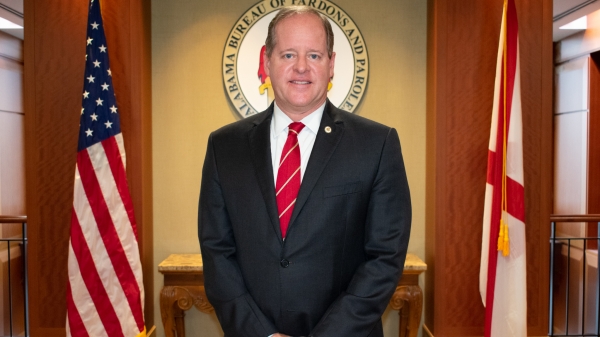By Bill Britt
Alabama Political Reporter
MONTGOMERY—Last week, the Council of State Governments Justice Center (CSG) gave its fourth presentation on prison reform to the State’s Prison Reform Task Force. CSG has been advising the State on how to affect change at its overcrowded prison as part of Governor Bentley’s prison reform initiative.
The report cites a “data-driven approach to reduce corrections spending and reinvest savings in strategies that can decrease recidivism and increase public safety.”
State Senator Cam Ward (R-Alabaster), who heads the task force, has been the leading conservative voice to overhauling the State’s failing prison system. Ward says that the goal is not to release any inmates early —“because public safety is first and foremost in everything we do here”—but to address the systemic problems that have faced the corrections system for decades.
Ward thinks this will be accomplished through sentencing reforms, enhancement of parole supervision and the creation of community correctional programs.
Alabama is a State with a reputation for being tough on crime, the question many are asking is, “Can it learn to be smart on crime?” Ward, with the support of Gov. Bentley and a host of other stakeholders, believes that it can and, perhaps most urgently, it must.
The Justice Reinvestment process, as the study is known, has identified three crucial challenges that must be addressed in order to reform the State’s failing system. They are recidivism, overcrowding and the unsupervised release of inmates. According to the report, “Inefficient supervision practices do not prioritize limited supervision resources, resulting in recidivism. Alabama’s prisons are the most crowded in the country and limited prison space is not prioritized for individuals convicted of violent offenses, [and] parole approval rates have declined resulting in longer lengths of stay in prison and an increasingly large number of people leaving prison each year without supervision.”
Over the last several decades, the legislature has shown little interest in building new facilities and even less interest in raising the taxes needed to do so. Facing bad publicity and mounting legal pressure, the State is left with few options as to how it will address the problems.
The Council of State Government’s plan would decrease prison population through alternative sentencing, and more probation officers to ensure fewer offenders enter or reenter the system. According to the report, currently “40 percent of all admissions to Alabama Department of Corrections custody are violators of either probation or parole, with many for technical violations.”
According to Ward, there are not enough parole officers to be effective. “We should have about 60 inmates to one officer, currently, we’re at 200. We need to hire more,” Ward said.
Studies show that better supervision leads to fewer individuals reentering the system, which as the report says, is an area were Alabama has been failing.
State prisons are currently operating at around 195 percent capacity, with “many individuals convicted of low-level property and drug offense,” according to the CGS report. The plan suggest that much of the overcrowding is a result of the limited prison space not being prioritized for individuals convicted of more violent offenses.
Ward has been at the forefront of sentencing reform which has resulted in a decrease in non-violent offenders entering the system. “It is having a good effect. We’ve seen an 18 percent decrease in people going in,” said Ward.
In a state were many of its citizens have a “lock them up and throw away the key” attitude, Ward says the legislature walks a fine line, but the goal is always “public safety first.”
The goal of the plan produced by CSG is to reduce prison population by 4,513 inmates by 2021.
Ward says that this is not a case of letting people out of prison early, but a reduction that would happen as a result of sentencing reforms, enhancement of parole supervision and better community correctional programs.
The Governor has acknowledged that the situation is dire and will require smart policy solutions and not more political ones. The task force goal is to meet the Governor’s expectations.



















































